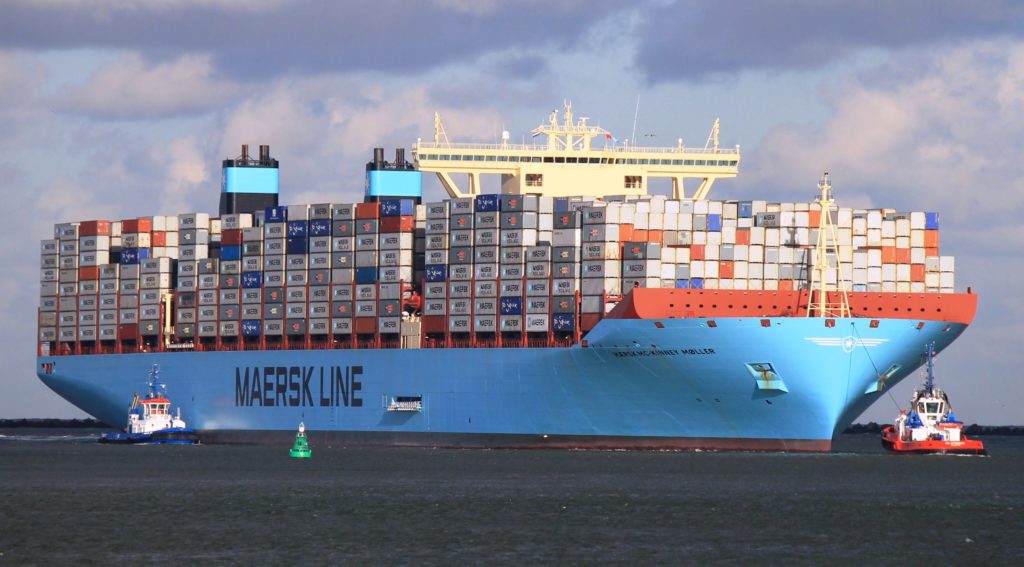A.P. Moller-Maersk A/S, the world’s largest container shipping line, said on Monday that customers using its giant box ships will have to pay separately for fuel from 2020, when prices are expected to surge because of tougher environmental standards. The regulations are designed to cut down emissions of sulfur, a pollutant blamed for human health conditions such as asthma.
To get customers ready for the fuel upgrade, the Copenhagen-based company will from next year start to break out the fuel cost when charging its customers for delivering goods in steel containers across thousands of miles of ocean. From 2020, customers will then be expected to cover that bill.
“The 2020 sulfur cap is a game changer for the shipping industry,” Vincent Clerc, Chief Commercial Officer at Copenhagen-based Maersk, said in a statement. The new bunker fuel surcharge model “is a simple, fair and predictable mechanism that ensures clarity for our customers in planning their supply chains for this significant shift.”
Maersk, which controls about a fifth of the container shipping market, has for years added surcharges to its container rates to make up for swings in bunker fuel prices with varying degrees of success. It hasn’t always succeeded in moving all costs over to clients because of fierce competition and overcapacity in the shipping industry.
A successful implementation of the new pricing system could have profound implications for trade given that Maersk says its own fuel bill in 2020 will jump by $2 billion — or almost 60 percent more than it had to pay in 2017. The company estimates an extra fuel bill of $15 billion a year for container shipping lines. About 90 percent of world trade moves by sea, including millions of tons of oil, gas and dry commodities like coal and iron ore.
Copyright Ships & Ports Ltd. Permission to use quotations from this article is granted subject to appropriate credit given to www.shipsandports.com.ng as the source.
